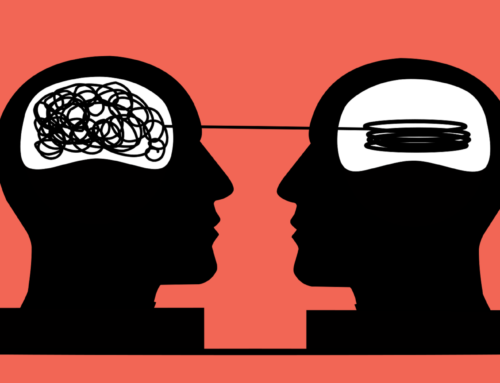Nearly half of us will experience a mental illness at some point in our lives. And all of us will go through periods of stress, sadness, grief and conflict.
We’re better able to navigate these periods when we are able to access the right support, medication or services. Sometimes the right treatment is lifesaving.
There are a range of people who can help with mental health issues. But it can be hard to know who is best to turn to, as practitioners vary widely in their training, experience, and expertise.
Some are trained to offer support for psychological issues, like grief and stress, others specialise in more serious mental illnesses such as depression, bipolar disorder or schizophrenia.
So where do you begin when you’re looking for a mental health professional?
Your GP
If you’re feeling stressed, anxious, depressed, or having difficulty coping, your GP can be a good first port of call.
Figures suggest Australians see their GPs for mental health issues more than any other health concern.
“It is not musculoskeletal problems patients are presenting with most often, or cardiovascular disease — the stock standard medical presentations we always hear about,” Dr Bastian Seidel, the president of the Royal Australian College of General Practitioners, said.
“It is psychological issues GPs are dealing with most of the time.”
All GPs have mental health training, and for most of us they are the health professional we know best and the one we see most often.
If you know you’re going to see your GP about a mental health issue, it can help to plan ahead and book a double appointment. It will give you a bit more time to talk about what’s going on, and what might be the best treatment options for you.
Depending on your situation they may refer you to a psychologist, psychiatrist, counsellor, or other mental health practitioner. They may also put you on a GP Mental Health Treatment Plan, which gives you access to subsidised care.
If your GP doesn’t refer you to a mental health professional, you can go directly to a psychologist or counsellor yourself.
Psychiatrists
Psychiatrists are medical doctors who specialise in diagnosing and treating mental illness.
They tend to treat complex and serious mental illness, and have a deep understanding of physical and mental health, and how they affect each other.
“Psychiatrists have a broad knowledge of biological factors as well as psychological and psychiatric issues,” says Dr Gordon Parker, professor of psychiatry at the University of New South Wales and founder of the Black Dog Institute.
Psychiatrists are the only mental health practitioners able to prescribe medication, which they commonly do (if appropriate) alongside their use of psychological treatment (also known as psychotherapy), and brain stimulation therapies.
“If somebody walks in with a biological problem — they’ve got schizophrenia or bipolar disorder — a broad-based psychiatrist is likely to prioritise medication as part of their treatment.
“But if somebody walked in with an existential midlife crisis, a psychiatrist wouldn’t prescribe a medication, but would counsel, and give psychotherapy advice,” Professor Parker says.
Psychiatrists work in public and private hospitals, community mental health services and private consulting rooms. You’ll need a referral from your GP or another medical doctor to see a psychiatrist.
– Olivia Willis
Read more: Psychiatrists, Psychologists and Counsellors: Who to See for Your Mental Health Issues
Image by Fernando from Unsplash








Leave A Comment